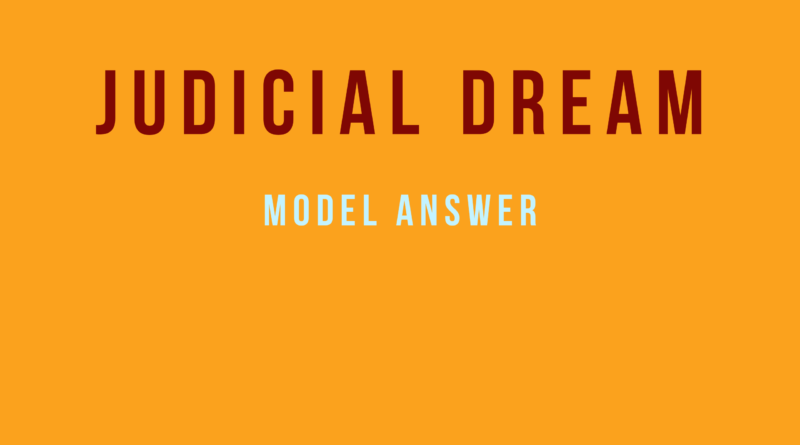SPECIAL MARRIAGE ACT
Discuss the provisions of Special Marriage Act, 1954.
In every society, marriage is one of the most important phase of person’s life. It unites two persons of opposites sexes for “n” number of years and allows them to live under same roof. It gives them permission to procreate a child. So, it also helps the society in continuation by adding a unit into it.
In our country, there is no uniform law and the provisions of marriages are still governed by the personal laws like Muslim marriages are governed by Muslim personal laws and Hindu marriages are governed by Hindu personal laws.
According to these personal laws, a person of a particular religion can solemnize a valid marriage. For example according to Hindu personal law only two Hindus can solemnize a valid marriage. The Hindu personal laws does not allow one Hindu and one Muslim to solemnize marriage under Hindu personal law.
That is why, for the solemnization of inter- caste marriages, Government of India enacted Special Marriage Act,1954. According to this act, any of two persons irrespective of their religion can perform a marriage according to this act. Any Hindu, Muslim, Buddhist, Jain, Sikh, Christian, Parsis, Jews or even Indian nationals living in Abroad can perform a marriage under Special Marriage Act, 1954. If one Hindu marries with one Muslim according to Special Marriage Act, 1954, that marriage will be considered valid marriage.
The marriage performed under Special Marriage Act, 1954, is a civil contract and there is no need to perform ceremonies but the parties can solemnize a valid marriage only if they fulfil certain conditions i.e.
- Any of the party must not have any spouse living at the time of marriage because this act allows only monogamous marriages.
- The groom must be at least of 21 years old and bride must be at least of 18 years old.
- The parties should be competent to give free consent. It means they should be of sound mind.
- The parties should not fall within the degree of prohibited relationship.
If both the parties fulfil these conditions, then only they can perform a valid marriage under Special Marriage Act, 1954.
Special Marriage Act, 1954, provides all the rights to the spouses which are provided by personal laws but this Special Marriage Act, 1954, is different from personal laws only in one perspective, because it allows inter- religious marriages and under this act, any of two persons can solemnize a valid marriage. It does not matter whether they both are Hindus or one person is Hindu and another one is of another religion.



